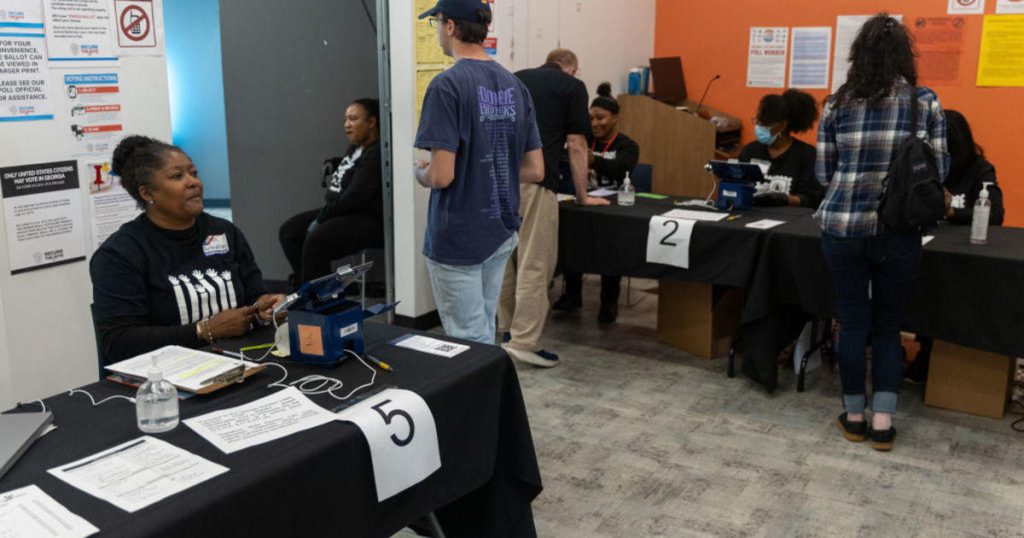A Georgia judge rejected a Republican lawsuit aimed at blocking election offices from opening on the weekend to allow voters to hand in their mail ballots in person. The lawsuit targeted Fulton County, a Democratic stronghold, but several other counties with Democratic leanings also announced plans to open for ballot drop-off over the weekend. The lawsuit cited Georgia law that limits the use of ballot drop boxes after the end of advance voting on Friday, but state law allows voters to deliver absentee ballots in person until 7 p.m. on Election Day. The judge rejected the lawsuit’s claims that voters could not hand-deliver their ballots during this period.
The lead lawyer for the lawsuit argued that voters should not be allowed to hand-deliver ballots from the end of early in-person voting on Friday until Election Day on Tuesday, despite allowing ballots to arrive by mail during this time. The judge, Kevin Farmer, ruled that it was not a violation of state code for voters to hand-return their absentee ballots. Fulton County reported that 105 ballots had been received as of Saturday evening, with a requirement for voters to sign an affidavit when returning their ballot in person. Republicans have long focused on Fulton County’s election practices, with former President Trump falsely accusing the county of election fraud in 2020.
State GOP chairman Josh McKoon accused Democratic-controlled counties of illegally accepting ballots, sparking online discussions among Republican activists. A dispute arose when a Fulton County election official initially stated that observers would not be allowed inside election offices while ballots were being turned in, citing that these were not polling places and didn’t allow for partisan poll watchers. However, the official later clarified that the process should be open to the public, with members of independent monitoring teams and investigators from the secretary of state’s office potentially present. The controversy surrounding the handling of absentee ballots in Georgia reflects ongoing concerns about election integrity and transparency.














